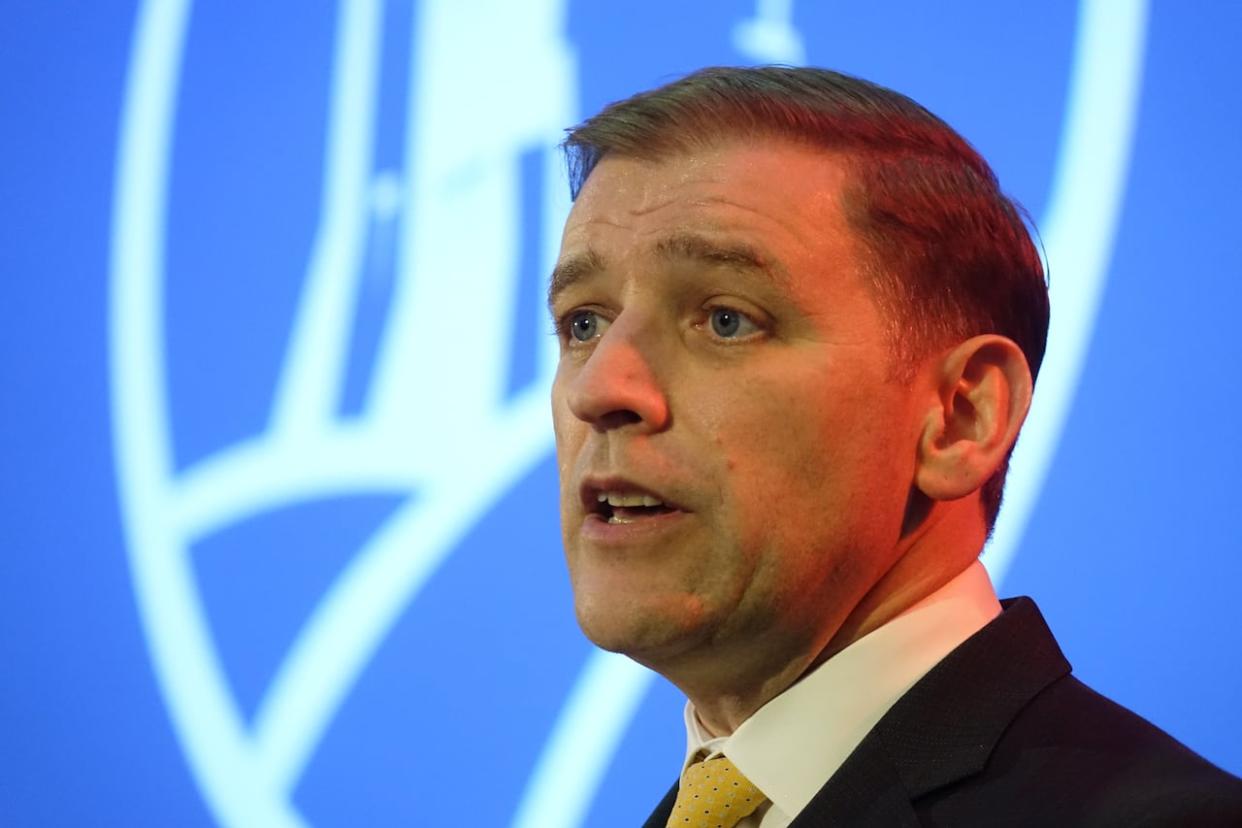N.L. premier responds to Bank of Canada governor's warning of political interference in 2nd letter


Newfoundland and Labrador Premier Andrew Furey penned a letter to the Bank of Canada last month asking officials to suspend interest rate hikes. (Patrick Butler/CBC)
Newfoundland and Labrador Premier Andrew Furey has sent another letter to the governor of the Bank of Canada asking for a pause on an increase to interest rates, after the governor told him such a move could question the independence of his institution.
Tiff Macklem wrote to Furey on Sept. 13, thanking him for his public letter a week earlier, but warning him against similar communications in the future.
"While I am very pleased to get your perspectives on the impact of our policy decisions, instructions or requests from elected officials about how we should set interest rates could create the impression that the Bank of Canada's operational independence is at risk," Macklem wrote. "I am sure you agree that this would be unfortunate."
Furey was one of several Canadian premiers to write Macklem in September, while the Bank of Canada was mulling another rate change. In the end, the bank decided to stand pat on five per cent.
On Tuesday, Furey sent Macklem a second letter, obtained by CBC News.
"I am writing again to express views on behalf of the people of my province of which I am duly elected. Please know that this is not instruction as that would fall beyond my authority, and if that authority did exist that instruction would indeed impact the independence of your office," Furey wrote.
He added that an interest rate increase would only put more financial strain on Newfoundlanders and Labradorians.
Ontario Premier Doug Ford also penned a second letter to Macklem this week, ahead of the Bank of Canada's next decision on the interest rate, expected Wednesday. Ford posted it on X, the social media platform formerly known as Twitter.
Several critics have weighed in on the open letters, including former Bank of Canada governor David Dodge, who called it "political grandstanding."
Speaking to reporters on Tuesday afternoon, Furey said he didn't think his original letter crossed the line.
"He doesn't report to me. I don't govern him. I have a job to make sure the voice of Newfoundlanders and Labradorians is heard, and I think we did that with respect to writing him. It would be different if I was the prime minister. Then I would be telling him what to do."
Furey said he still wants the Bank of Canada to give their rate increases time to take effect before raising the rate any further.
While the Bank of Canada's goal is to get inflation down to two per cent, Furey questioned whether that was a reasonable target given the effects of the COVID-19 pandemic and wars in Ukraine and Israel/Palestine.
Inflation cooling
The entire country has been dealing with a cost-of-living crisis, with inflation peaking at 8.1 per cent in June 2022.
According to the latest data, inflation has cooled to 3.8 per cent in September, down 0.2 percentage points since the previous month.
"We can see that higher interest rates are making things tough for many people," Macklem wrote to Furey. "But high inflation erodes everyone's purchasing power: it makes it hard to pay bills, put food on the table and plan for the future. High inflation particularly hurts the most vulnerable members of society because they are least able to afford increases in their cost of living."
While Macklem noted inflation had dropped significantly, he said there was still a chance they'd have to raise rates in the future.
"If inflationary pressures persist, we may need to raise our policy rate further," he said.
Download our free CBC News app to sign up for push alerts for CBC Newfoundland and Labrador. Click here to visit our landing page.


